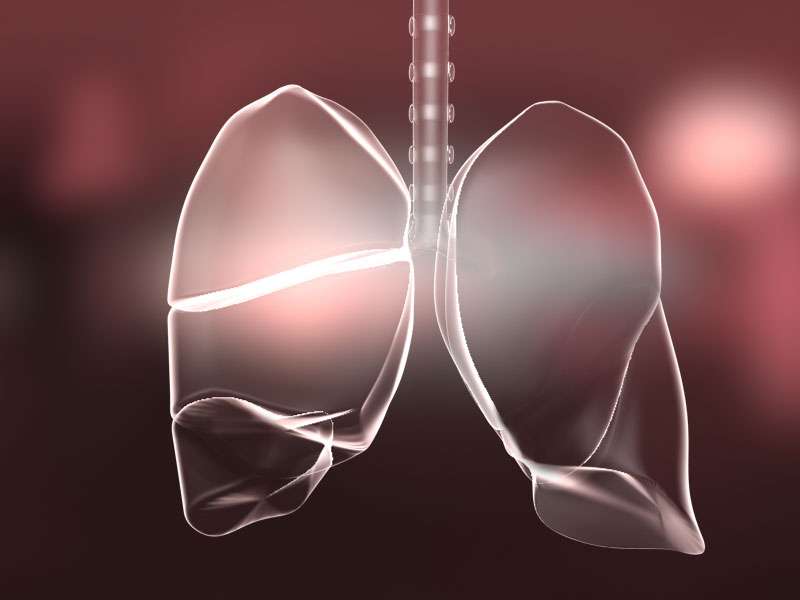Texas engineers develop potential treatment for whooping cough

A team of researchers from The University of Texas at Austin and Synthetic Biologics Inc. have developed two antibodies to potentially treat or prevent pertussis, the highly contagious respiratory tract infection that affects millions of infants around the world and results in an estimated 200,000 child deaths every year.
For the past five years, the research team has worked to develop two antibodies as a new anti-pertussis therapeutic injection. The team's efforts recently paid off as preclinical testing conducted on animals demonstrated that their antibodies work as a prophylaxis to provide short-term immunity and as a treatment to accelerate recovery. The findings from the preclinical studies were published in a paper on Dec. 2 in Science Translational Medicine.
Commonly known as whooping cough, the disease causes painful fits of coughing and life-threatening symptoms in infants and has had a devastating impact worldwide. According to the Centers for Disease Control and Prevention, more than 16 million pertussis cases occur annually, and the disease continues to be a major cause of infant death in developing nations. In the United States, childhood vaccinations largely prevent the disease, but there still has been an increase in incidence during the past 20 years, including several outbreaks in recent years. Antibiotics are frequently ineffective in severe pertussis, and there is no specific therapeutic to treat pertussis in these infants or prevent it in vulnerable infants too young to be vaccinated—but now there may be hope for the future.
Jennifer Maynard, a chemical engineer in the Cockrell School of Engineering, is collaborating with Dr. Michael Kaleko, senior vice president of research and development for Synthetic Biologics, a co-author on the paper. Synthetic Biologics, a clinical-stage company focused on targeting pathogen-specific diseases, has licensed the antibodies from UT Austin to eventually bring the product to market.
"In the developing world, an estimated 200,000 babies die a year, and that's where we think we can have a really big impact," Maynard said. "If we can get our antibodies to these high-risk infants, we could potentially prevent the infection from occurring in the first place."
When an infant is infected with pertussis, a secreted toxin, called pertussis toxin, damages the immune system and causes the infant's white blood cell count to rise to dangerous levels in the bloodstream—levels where the cells could block blood flow through the lungs.
Maynard's two antibodies potently neutralize pertussis toxin and could be used individually or be developed as a combination therapeutic. The first binds to the toxin and prevents it from attaching to healthy cells; the second stops the toxin from reaching its target within a healthy cell.
By neutralizing pertussis toxin, the antibodies are anticipated to bolster immune function and rapidly reduce the white blood cell count.
"We believe the key to preventing death is reducing the white blood cell load, which becomes extremely elevated during infection," Kaleko said. "If we can bring the count down or keep it low, the sick child may have a much better prognosis."
When the team administered the antibodies before infection in mice, the treatment acted as a vaccine, giving passive immunity to pertussis. When administered after infection in nonhuman primates, the antibodies lowered the white blood cell counts, speeding recovery.
In animal models, the antibodies did not completely eradicate the pertussis bacteria, but they diminished the bacterial loads and kept symptoms at bay. The researchers think the treatment could be combined with antibiotics to eliminate the bacteria that cause the illness.
The team's long-term plans are to advance an antibody product to human trials to evaluate its potential for two clinical applications. As a treatment, the therapeutic may be tested in critically ill infants with pertussis to potentially shorten the disease's course, mitigate complications and diminish mortality. As a prophylactic, the therapeutic has the potential to provide antibody protection instantly to at-risk newborns in the developing world to protect them from pertussis for the first few months of life, the timeframe during which the infants are at greatest risk for severe disease but are too young to be immunized.
"We want to make sure that our research is really going to have impact," Maynard said. "Most of the babies who get sick haven't been immunized, so we hope to provide the immunity that they are lacking."
More information: A. W. Nguyen et al. A cocktail of humanized anti-pertussis toxin antibodies limits disease in murine and baboon models of whooping cough, Science Translational Medicine (2015). DOI: 10.1126/scitranslmed.aad0966















